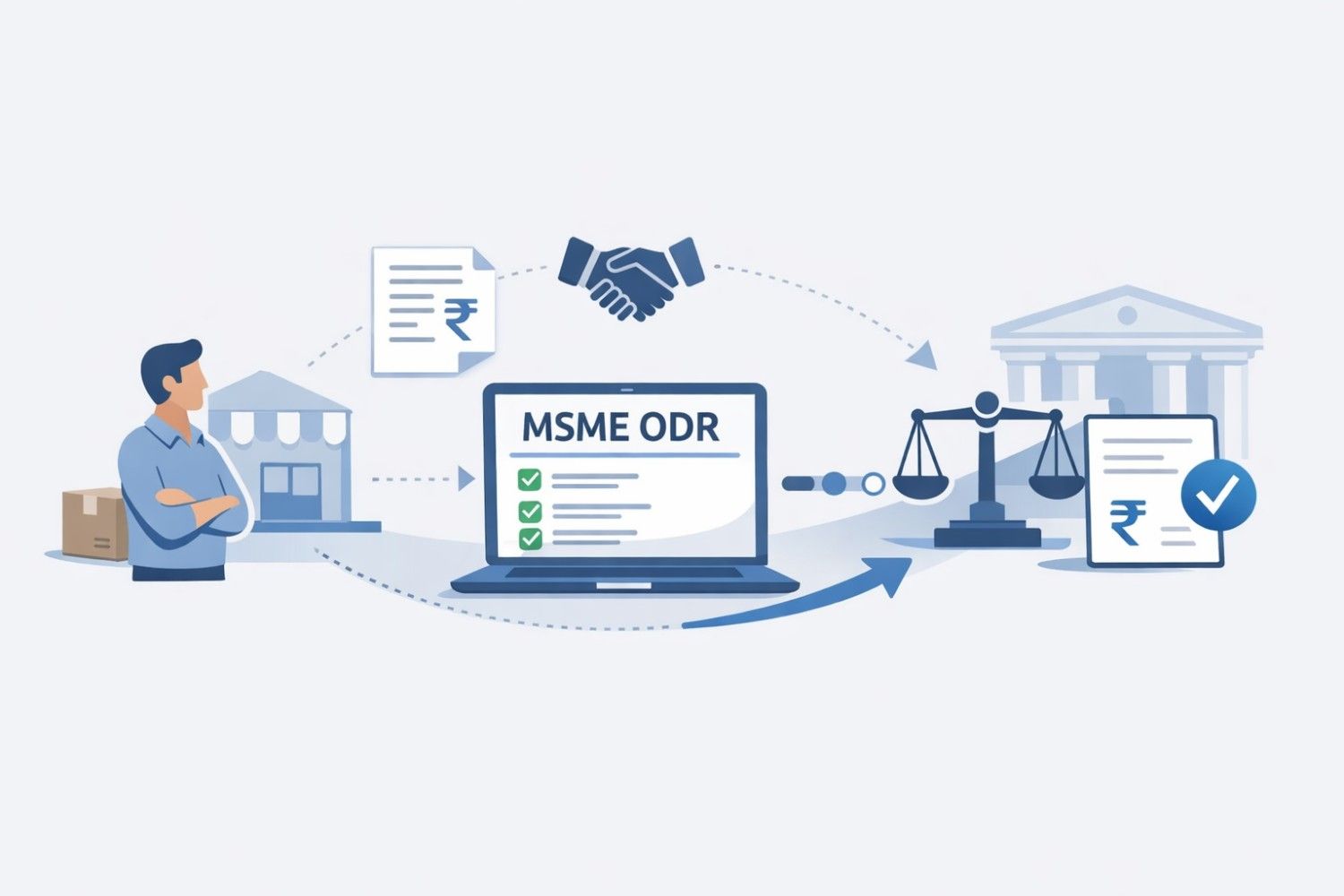PROTECT YOUR IDEA, POWER YOUR STARTUP: THE COMPLETE IP STRATEGY FOR INDIA 2025
By the SolvLegal Team
Published on: Nov. 3, 2025, 12:31 p.m.

In 2025, protecting innovation is critical for India’s startup scene. Startup IP protection in India has become a hot topic for founders and investors alike. India has seen a 44% increase in IP filings over the last five years, and startups have filed nearly 13,000 patent applications and 49,000 trademark applications by late 2024. These trends show that young companies are racing to secure their ideas and brands. In fact, the official Startup India portal notes that “IPRs are a strategic business tool” for any organization, and resource-strapped startups rely on continuous innovation which they must protect with patents and trademarks.
Intellectual property rights do more than block copycats. They signal value to investors and customers. A patent or registered trademark assures stakeholders that a startup’s unique idea is legally safeguarded. Studies marks, even confirm this: startups holding patents and trademarks in early stages are over 10 times more likely to secure funding. In short, a smart IP strategy not only locks down your invention; it can power growth and unlock capital. This guide explains how Indian startups can craft that strategy covering patent and trademark basics, key legal provisions, government schemes, and how IP ties into funding.
Why IP Protection Matters for Startups
Every startup begins with an idea. But in today’s fast-changing Indian market, an idea alone is never enough. What truly matters is protecting that idea before someone else claims it.
India now has one of the world’s most dynamic startup ecosystems. Thousands of new ventures are registered every year across technology, fintech, AI, renewable energy, and healthcare sectors. Yet one common challenge remains show to keep innovation safe in a market full of competition. That’s where intellectual property protection steps in. It gives a legal shield to your creativity, innovation, and brand. It also helps you attract funding, strengthen your business model, and scale confidently. Think of IP as your silent co-founder protecting your work while you focus on growth. The timing is right for startups to invest in IP. India’s innovation ecosystem is booming: the Economic Survey 2024–25 found domestic patent filings have more than doubled since 2014–15, and startups in particular filed over 12,000 patents between 2016 and 2024. At the same time, trademark filings are growing and global rankings are rising, India jumped to 39th in the Global Innovation Index in 2024. In summary, every startup must plan an IP strategy from day one. It’s not an optional legal task it’s part of the business plan.
Understanding Startup IP Protection in India 2025
What Is Intellectual Property?
Intellectual Property (IP) refers to the creation of the mind of innovations, products, designs, content, or brand symbols that the law protects. For startups, it includes patents, trademarks, copyrights, industrial designs, and trade secrets. Each serves a unique purpose.
· A patent guards your invention or process.
· A trademark protects your brand name or logo.
· A copyright secures your creative works such as code or design.
· A design registration safeguards the look of your product.
· A trade secret keeps confidential formulas, methods, or data private.
Why Startups Should Care
For a startup, IP protection isn’t optional; it’s essential. Without it, your business idea is vulnerable. Competitors can copy your product, use your brand, or replicate your innovation. IP protection gives you ownership and the exclusive right to use and profit from what you create. It builds credibility, attracts investors, and prevents legal disputes.
In 2025, India’s innovation sector is thriving. Patent filings have more than doubled over the last decade, and startups alone have filed thousands of patents and trademarks. Government schemes, legal reforms, and digital filings have made IP protection faster and more affordable than ever.
Patents: Turning Innovation into Ownership
Why Patents Matter for Startups
A patent is a government-granted right that gives the inventor exclusive control over an invention for 20 years. It ensures that no one else can make, use, or sell your invention without permission.
For startups working in technology, engineering, health, or manufacturing, patents are crucial. They not only protect your innovation but also prove to investors that your technology is unique and defensible.
Eligibility and Process
Under the Patents Act1970, an invention must meet three main conditionsit must be new, involve an inventive step, and have industrial applicability.
The process is simple but strategic:
1. File a provisional application to secure a priority date.
2. Within twelve months, submit a complete specification.
3. Request for examination and respond to any objections.
4. On approval, your patent is granted and published.
Startups recognized by the Department for Promotion of Industry and Internal Trade (DPIIT) enjoy several benefits. They can file patents with an 80% fee rebate and request expedited examination. Digital filing systems have made the process transparent and efficient.
Case Study: RxPrism vs Canva
In 2023, the Delhi High Court granted an interim injunction to RxPrism Health Systems, an Indian startup, against the global design platform Canva. The court found that Canva’s “Present and Record” feature likely infringed RxPrism’s patented technology. This case showed how even a small startup, with a well-protected patent, could defend its innovation against a global corporation. It also highlighted the growing strength of Indian IP enforcement.
The 2024 Patent Rule Reforms
The Patent (Amendment) Rules, 2024, have made filing easier and faster. Startups can now request early examinations within shorter timelines, and all filings are completely digital. The deadline to request examination has been cut from 48 to 31 months, and online filings are fully digitized. These reforms are intended to reduce paperwork and shorten grant times. These changes have reduced grant times significantly, encouraging more young innovators to patent their ideas.
Patent Strategy for Startups
Protect early. File a provisional patent as soon as your idea takes shape. Work with registered patent facilitators, government-recognized experts who assist startups at minimal or no cost.
Use confidentiality agreements to protect your ideas during discussions or pitches.
Keep your patent portfolio up to date, as it adds value to your company’s balance sheet and investor confidence.
Trademarks: Building a Brand that Stands Apart
The Power of a Trademark
Your brand is more than a logo; it’s your identity. A trademark gives legal recognition to your name, logo, or slogan, ensuring no one else can use a confusingly similar one. For startups, trademark registration is a smart move to build credibility and trust.
Trademark Law and Protection
Under the Trademarks Act, 1999, a registered trademark gives exclusive rights to its owner for ten years, renewable indefinitely. Registration provides a strong legal defense against misuse, imitation, or passing off.
Startups can apply for trademarks online, and DPIIT recognized startups get a 50% rebate on government fees. Once registered, a trademark becomes an intangible asset that grows in value with your business.
Case Study: Zepto Trademark Dispute
One cautionary tale shows why timely trademark registration matters. The Delhi High Court recently decided Kiranakart Technologies Pvt. Ltd. v. Mohammad Arshad [1](2025) in a dispute over the mark “ZEPTO.” Kiranakart runs the quick-commerce app Zepto (launched 2021), but an individual named Arshad had registered the “ZEPTO” mark back in 2014 and not used it. The court canceled Arshad’s trademark, finding he hadn’t used it for 8+ years, while Kiranakart built goodwill in the mark through use and promotion. In effect, the court held that unused trademarks can be struck off the register. This case highlights two lessons: first, register your brand early (so a cybersquatter can’t block you); second, actually use your registered marks in commerce (to avoid a non-use cancellation under Section 47(1)(b)
Trademark Strategy for Founders
Before choosing your brand name, conduct a thorough search to ensure it’s available. Once selected, register as soon as possible. Use the mark consistently across your website, packaging, and products to build goodwill. Renew it every ten years and monitor for infringement. A trademark not only protects your identity but also enhances your startup’s valuation.
Copyrights and Trade Secrets: The Silent Protectors
Copyright protects creative work like your website content, app design, marketing videos, or software code. It is governed by the Copyright Act 1957. Although copyright arises automatically upon creation, registration adds legal strength in disputes.
Trade secrets, on the other hand, protect confidential information like formulas, processes, or customer data. These are not registered but maintained through contracts such as Non-Disclosure Agreements (NDAs). For tech startups, NDAs are essential when working with partners, employees, or freelancers. Together, copyrights and trade secrets give your startup a quieter but equally powerful layer of protection.
Design Registration: Protecting the Look of Your Innovation
While patents protect how your product works, design registration protects how it looks. Under the Designs Act, 2000, startups can register the unique shape, pattern, or surface design of a product that gives it visual appeal. Design protection is vital for businesses in sectors like fashion, packaging, home decor, or consumer electronics where appearance influences customer choice. It grants the owner exclusive rights for ten years, extendable by five more, to prevent others from copying or imitating the product’s design.
For example, if your startup creates a distinctive smartphone body or an innovative bottle shape, design registration ensures competitors cannot legally reproduce it. Combined with patents and trademarks, it forms a complete IP strategy that covers both function and form of your innovation.
How IP Drives Startup Funding
Intellectual property is now seen as a business asset. Investors evaluate IP portfolios before funding because it shows innovation, barriers to entry, and long-term potential. Studies reveal that startups holding both patents and trademarks in early stages are over ten times more likely to secure funding. Patents attract venture capital for technology-heavy ventures, while trademarks assure investors of brand strength and consumer trust.
A well-managed IP portfolio can:
· Increase startup valuation.
· Provide leverage in investment negotiations.
· Open opportunities for licensing and partnerships.
· Serve as collateral for IP-backed loans, an emerging concept in India.
Startups like Niramai Health Analytix and Ather Energy have used IP strategically to raise funds and expand internationally. Their success underscores one truth protecting innovation pays off.
Startups in “deep tech” or biotech especially need patents to show maturity. But even B2C brands use trademarks to prove loyalty. Regardless of the sector, don’t leave IP out of your pitch deck. Quantify your IP (number of filings, granted patents, trademark registrations) alongside financial projections. Demonstrate that your innovation can’t easily be replicated.
Of course, IP isn’t a magic bullet. Early-stage startups still need proof of concept and market fit. But from a funding standpoint, strong IP tips the scales in your favor. In a competitive funding environment, patents and trademarks are concrete achievements that signal credible differentiation to investors
Government Support and Legal Framework
India has taken major steps to help startups safeguard intellectual property. The Scheme for Startups Intellectual Property Protection (SIPP), launched by the DPIIT, provides mentoring, support, and fee reimbursement. Recognized startups can access professional patent and trademark facilitators without paying their service fees. The government directly covers those costs.
The Startup India initiative has simplified processes, digitized filings, and offered significant fee concessions. Patent applications from startups are examined faster, while trademark applications enjoy partial rebates. The system is now more accessible and startup-friendly than ever before.
The Patents Act, 1970, the Trademarks Act, 1999, and the Copyright Act, 1957 remain the core legal pillars. Together, they form a framework that ensures innovation, creativity, and branding receives strong legal protection in India.
For founders, the message is clear, integrate IP strategy into your business plan from the start. Identify what needs protection, file early, and use government support to make the process affordable.
Key highlights of the Startup India IP support (some already mentioned):
· Facilitated services: Startups get access to vetted patent and trademark agents (facilitators). The government pays the facilitator fee, so startups only pay the official fees.
· Rebates on official fees: Patents get 80% fee discounts, trademarks 50%. These concessions lower the cost barrier significantly.
· Fast-track processing: Patent applications from recognized startups can be examined quickly
Conclusion
For Indian startups in 2025, startup IP protection India 2025 is not just legal compliance it is a strategic asset. Patents guard your tech. Trademarks guard your brand. Government support makes it accessible. Funding appetites makes it necessary.
If you’re building something new, bold, and future facing, don’t wait. Protect it before promoting it. Build the foundation for a business, not just a product. Your innovation deserves nothing less.
Act today: Map which inventions and brands you need to protect, apply under SIPP if eligible, file early, budget for IP costs, and treat IP as core to your startup story.
You’re not just securing rights; you’re building value.
Need Expert Help with IP Protection?
Don’t leave your innovation unguarded. At SolvLegal, our team of legal experts helps startups file patents, register trademarks, and craft tailored IP strategies that attract investors and safeguard creativity.
Protect your idea today. Connect with SolvLegal to secure your startup’s future.
FAQs
1. What is a patent and how long is it valid? A patent is an exclusive right granted for an invention (a new technical solution or improvement). In India, once granted, a patent is valid for 20 years from the filing date (subject to timely renewal fees). During this period, the patentee can stop others from making or selling the invention.
2. What is a trademark and how long does it last? A trademark is a sign (word, logo, etc.) that distinguishes a company’s goods or services. Registration under India’s Trademarks Act, 1999, gives exclusive rights in the mark. Trademark registration lasts 10 years from filing, and it can be renewed indefinitely in 10-year increments. Unlike patents, trademarks can potentially last forever with renewal and continued use.
3. How does IP protection help startups get funding? Holding IP rights signals value to investors. Research shows that startups with both patents and trademarks in early stages are over 10 times more likely to secure funding.In practical terms, patents demonstrate unique technology and market barriers, while trademarks protect brand identity. These make a startup more attractive in due diligence, potentially raising its valuation and drawing interest from VCs and acquirers.
4. What support does the government provide for startup IP? The Startup India initiative offers many benefits. Recognized startups get a panel of patent/trademark facilitators who help file applications (the govt. pays their fees) There are also big fee rebates (80% discount on patent fees, 50% on trademark fees), and patent applications can be fast-tracked for examination. Additionally, the SIPP scheme mentors startups on IP strategy, and links them to incubators or experts.
5. What is the SIPP scheme? SIPP stands for Start-up Intellectual Property Protection. Launched by the DPIIT, SIPP’s aim is “to promote awareness and adoption of IPRs among startups” and assist them in protecting their IP. Under SIPP, eligible startups (as per DPIIT’s recognition) can avail subsidized IP services. The scheme focuses on guiding startups through patent/trademark filings and even offers pro bono services and grants in certain cases.
RELATED ARTICLES
1. Understanding Startup India Registration: Eligibility, Process, And Benefits
2. Protecting Your Creations in the Digital Age: A Playbook for India
3. HOW TO RESPOND TO A TRADEMARK OBJECTION (WITH EXAMPLE REPLY)
ABOUT THE AUTHOR
This blog is authored by Shridansh Tripathi, a second-year law student at the Department of Legal Studies and Research, Barkatullah University, Bhopal.
REVIEWED BY, Gaurav Saxena a corporate lawyer focusing on company law, commercial agreements, and compliance strategy. He is the Founder of SolvLegal and a dual-degree professional with expertise in Law and Engineering. A graduate of the University of Lucknow, he has a deep understanding of Contract Law, Corporate Law, Intellectual Property Rights, Information Technology Law, and Data Privacy.
DISCLAIMER
The information provided in this article is for general educational purposes and does not constitute legal advice. Readers are encouraged to seek professional counsel before acting on any information herein. SolvLegal and the author disclaims any liability arising from reliance on this content.
[1] Kiranakart Technologies Pvt. Ltd. Vs. Hyretail Technologies Pvt. Ltd (NATIONAL COMPANY LAW TRIBUNAL CHANDIGARH BENCH 2025).

.jpeg)




